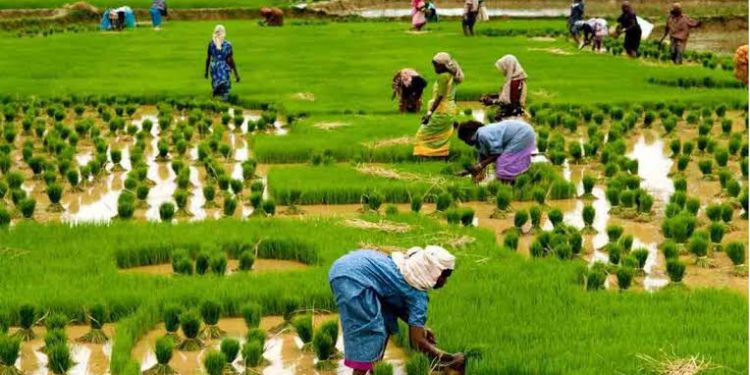The Central Bank of Nigeria has announced that more than 1.14 million farmers have taken part in producing 17 different agricultural commodities through its Anchor Borrowers Programme, a flagship initiative launched in 2015 to boost local production and reduce food imports. The programme, which links farmers to processors and provides access to credit and inputs, has seen participation from hundreds of private sector groups and several state governments.
According to the bank, the impact has gone beyond crop cultivation. It disclosed that over 1.13 million jobs have been generated along agricultural value chains through the Commercial Agricultural Credit Scheme, which began in 2009 to fast-track the development of the sector. These jobs span activities from input supply and processing to distribution and marketing, underscoring the sector’s potential to drive inclusive growth.
The apex bank highlighted that its interventions are not limited to agriculture but also extend to boosting youth entrepreneurship and expanding opportunities in other sectors. Recognising the critical role of young people in shaping the economy’s future, the bank introduced the Youth Entrepreneurship Development Programme to ease access to finance for youth-led enterprises, strengthen entrepreneurial skills, and stimulate the creation of small and medium-sized businesses. The goal, it said, is to harness the creativity and capacity of young Nigerians while increasing the non-oil sector’s contribution to national GDP.
In collaboration with the Bankers’ Committee, the central bank has also implemented the Agric-Business Small and Medium Enterprises Investment Scheme to expand employment opportunities and improve the managerial strength of agribusinesses. Similar financing windows have been created for the creative industries and technology sub-sectors to encourage innovation, create long-term jobs, and support the growth of new industries.
The bank stated that these interventions form part of 29 targeted programmes designed to address the needs of various stakeholder groups across the economy. It reaffirmed its commitment to sustaining these initiatives as part of a broader strategy to promote economic diversification, strengthen food security, and foster sustainable development.










